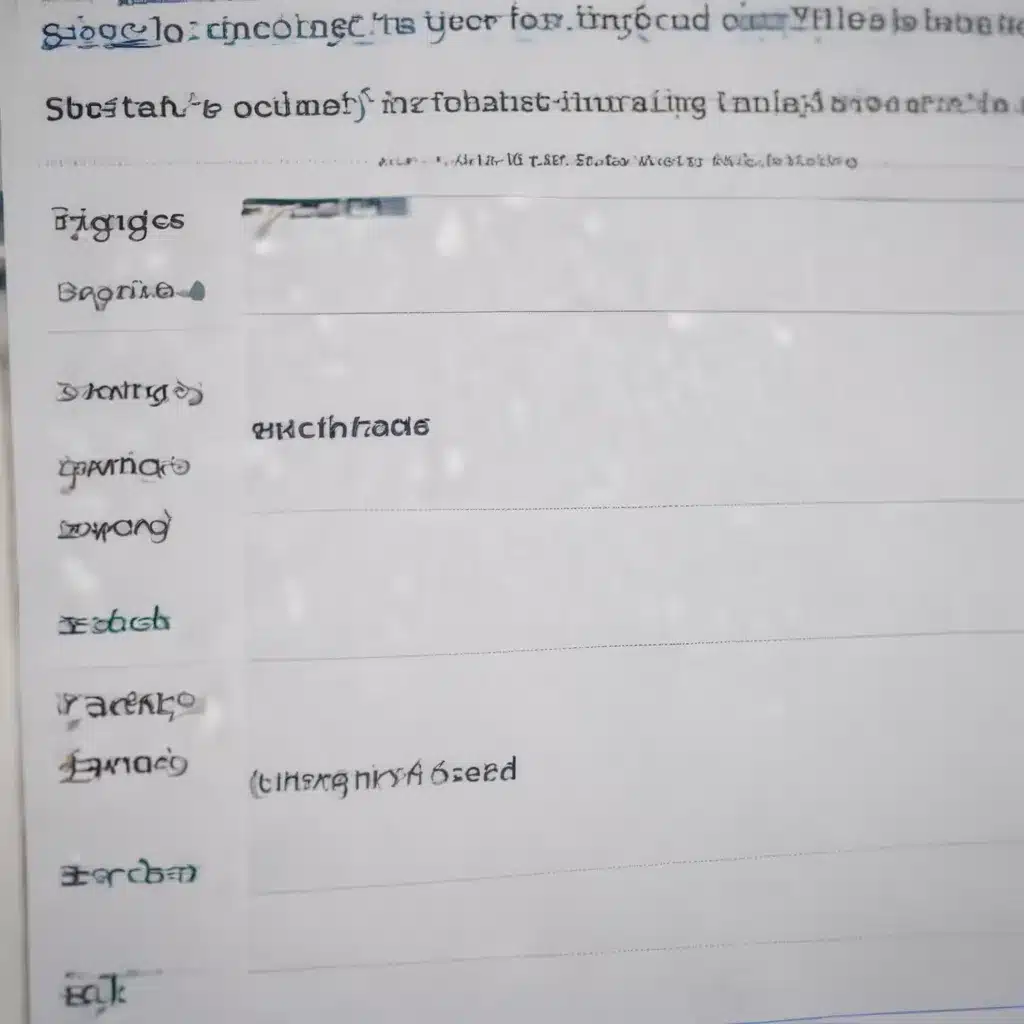
Does Article Length Impact Search Rankings?
As an SEO enthusiast, I’ve always been fascinated by the age-old debate surrounding the “ideal” blog post length. Should we be aiming for short, punchy pieces that get straight to the point? Or is longer, more comprehensive content the way to go?
Well, my friends, I recently dove deep into the data to uncover the truth. And let me tell you, the findings might just surprise you.
First, let’s tackle the elephant in the room – the notion that longer is always better. While it’s true that more in-depth, well-researched articles tend to perform better in terms of shares and backlinks, the correlation with actual search rankings is a bit more nuanced. According to a Backlinko study, the average Google first page result contains around 1,447 words. But get this – the researchers found no direct relationship between word count and rankings. Yep, you read that right.
So, what gives? Well, it seems that while longer content may have some SEO benefits, it’s not the be-all and end-all. In fact, research suggests that the vast majority of highly-ranked articles (around 85%) actually contain fewer than 1,000 words. The sweet spot seems to be between 1,000 and 2,000 words, with a mere 2.7% of top-ranking pages exceeding 2,000 words.
Now, before you start frantically trimming down your blog posts, let me offer a bit of nuance. The key, it seems, is to focus on creating content that truly answers the searcher’s query – whether that takes 500 words or 5,000. As the folks at SEO.co put it, “More important than word count is this: Your article should answer the intended query of the visitor. If it does that in 100 words better than another site can do in 10,000, then you win.”
But wait, there’s more! When it comes to social sharing and backlinks (two important ranking factors), longer content tends to have a clear advantage. The data shows that articles of 3,000 words or more get an average of 11.07 shares and links, compared to just 3.47 for content under 1,000 words.
So, what’s the takeaway here? Well, it seems the optimal blog post length is less about hitting a specific word count and more about striking the right balance. Shorter, more concise pieces can help you quickly satisfy search intent and rank well, while longer, more comprehensive articles can attract valuable backlinks and social engagement.
The key is to let your audience and the data be your guide. Experiment with different lengths, monitor your performance, and don’t be afraid to adjust your strategy as needed. And remember, at the end of the day, the most important thing is to create content that truly resonates with your readers.
Oh, and one more thing – don’t forget to sprinkle in some personality, humor, and narrative elements to really make your articles shine. After all, we’re not just writing for search engines here – we’re writing for real, live human beings. And in my experience, the best content is the kind that makes you laugh, think, and maybe even shed a tear or two.
So, there you have it, my fellow SEO enthusiasts. The answer to the age-old question of “how long should my blog posts be?” is a resounding “it depends!” But with a little bit of data-driven experimentation and a whole lot of heart, I’m confident you can find the perfect length for your unique audience and content goals.
Now, if you’ll excuse me, I’m off to write the next great American novel… er, I mean, blog post. Happy writing, my friends!
Oh, and don’t forget to check out MCRSEO for all your search engine optimization needs. These Manchester-based gurus know their stuff!



























